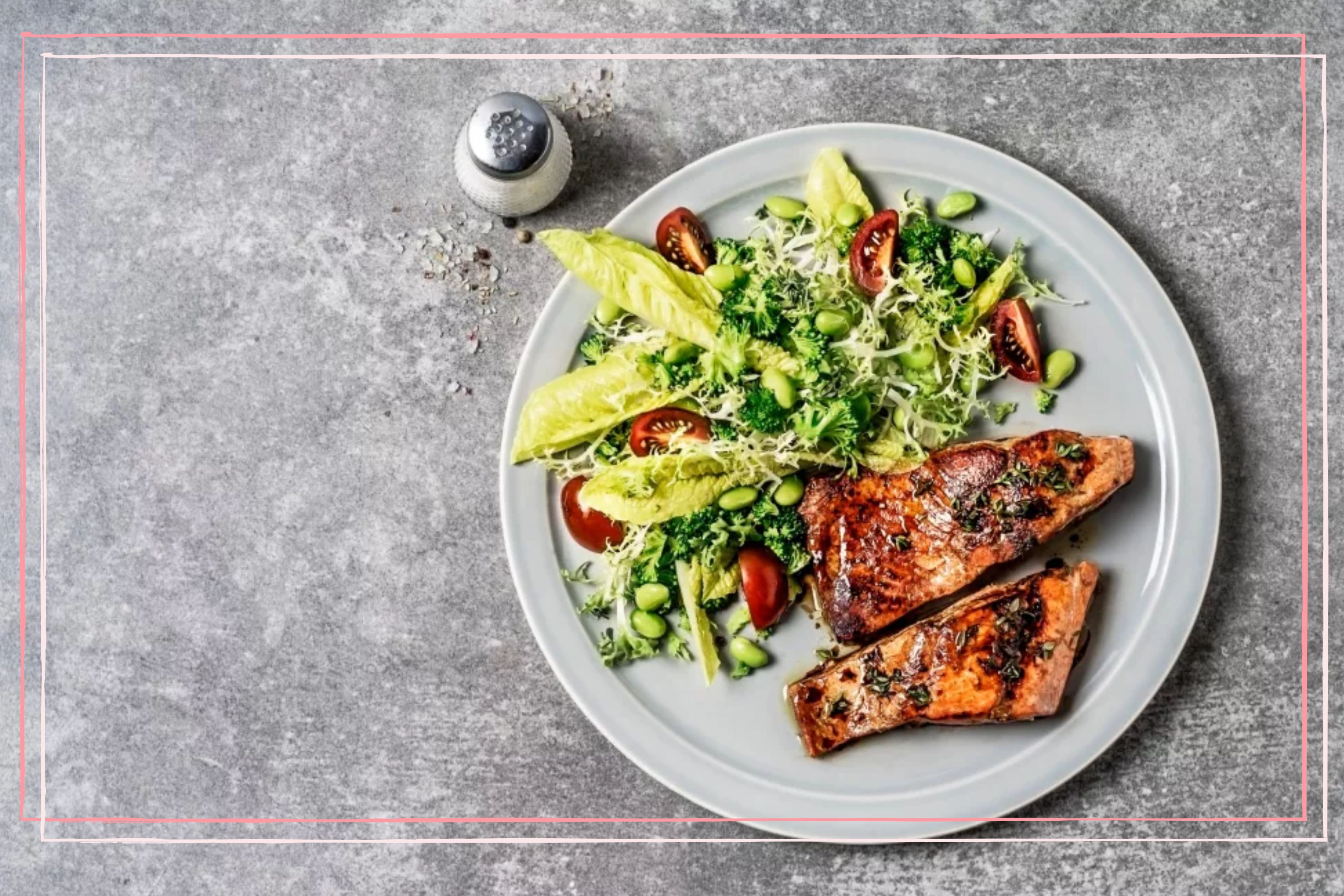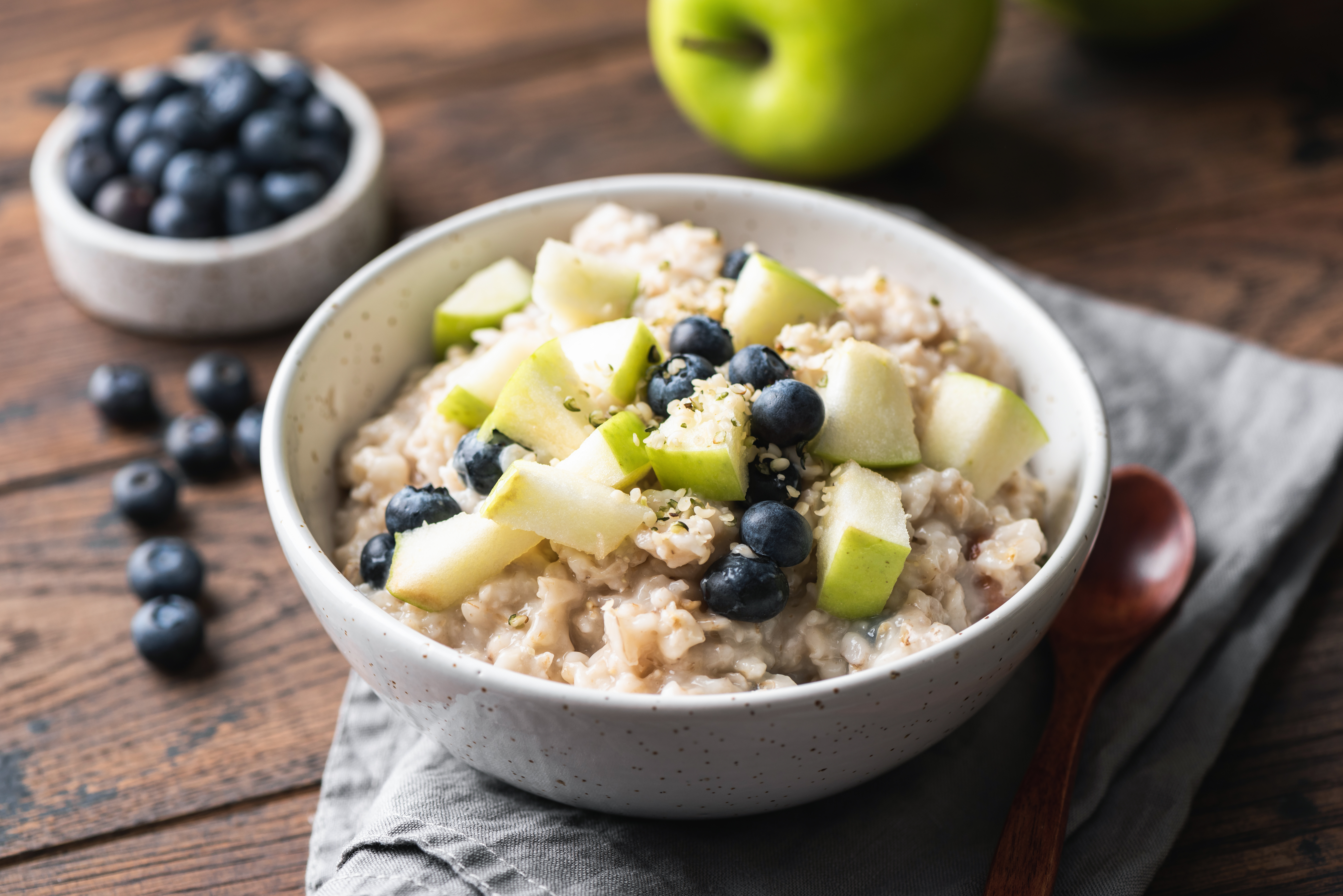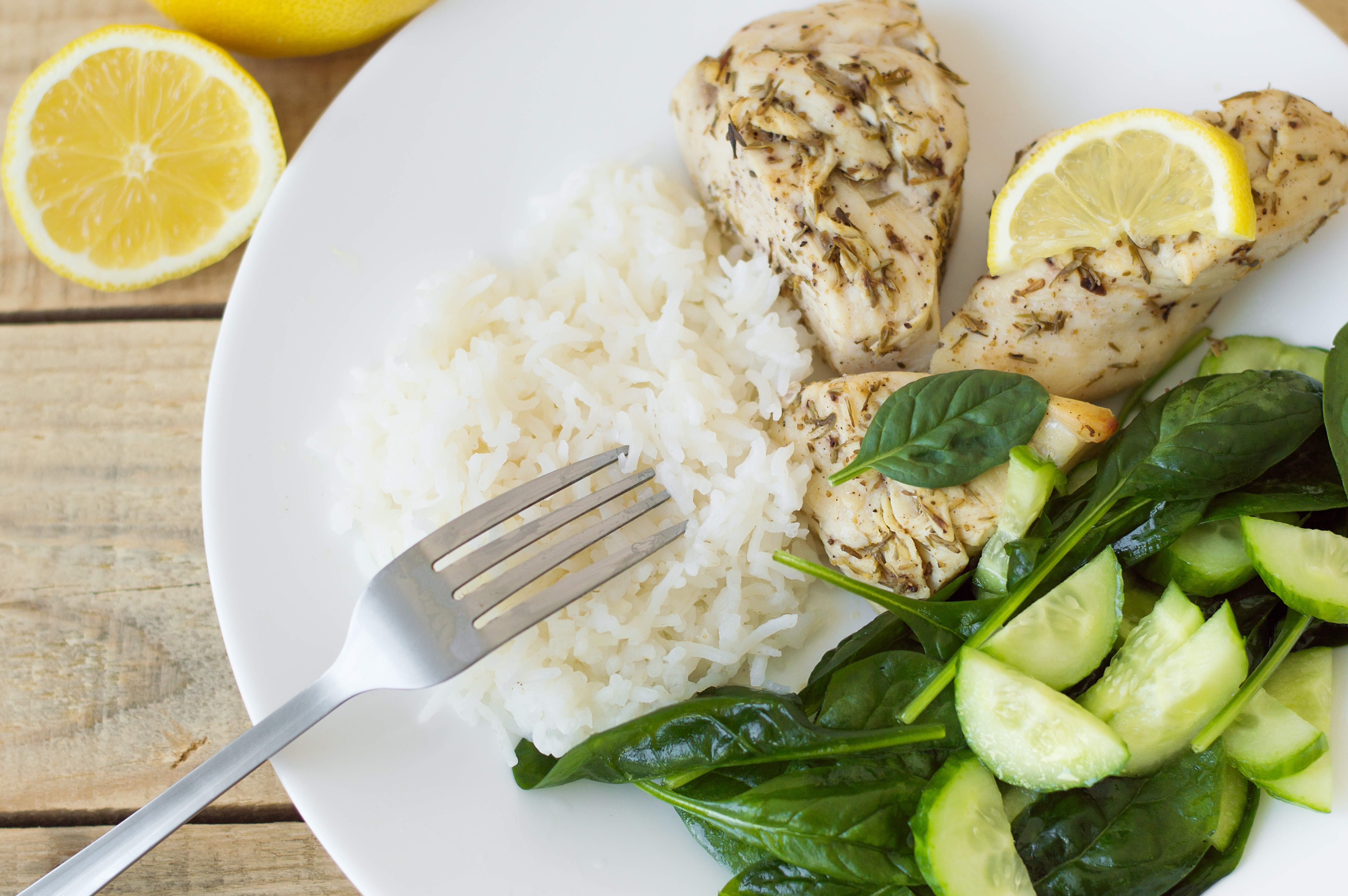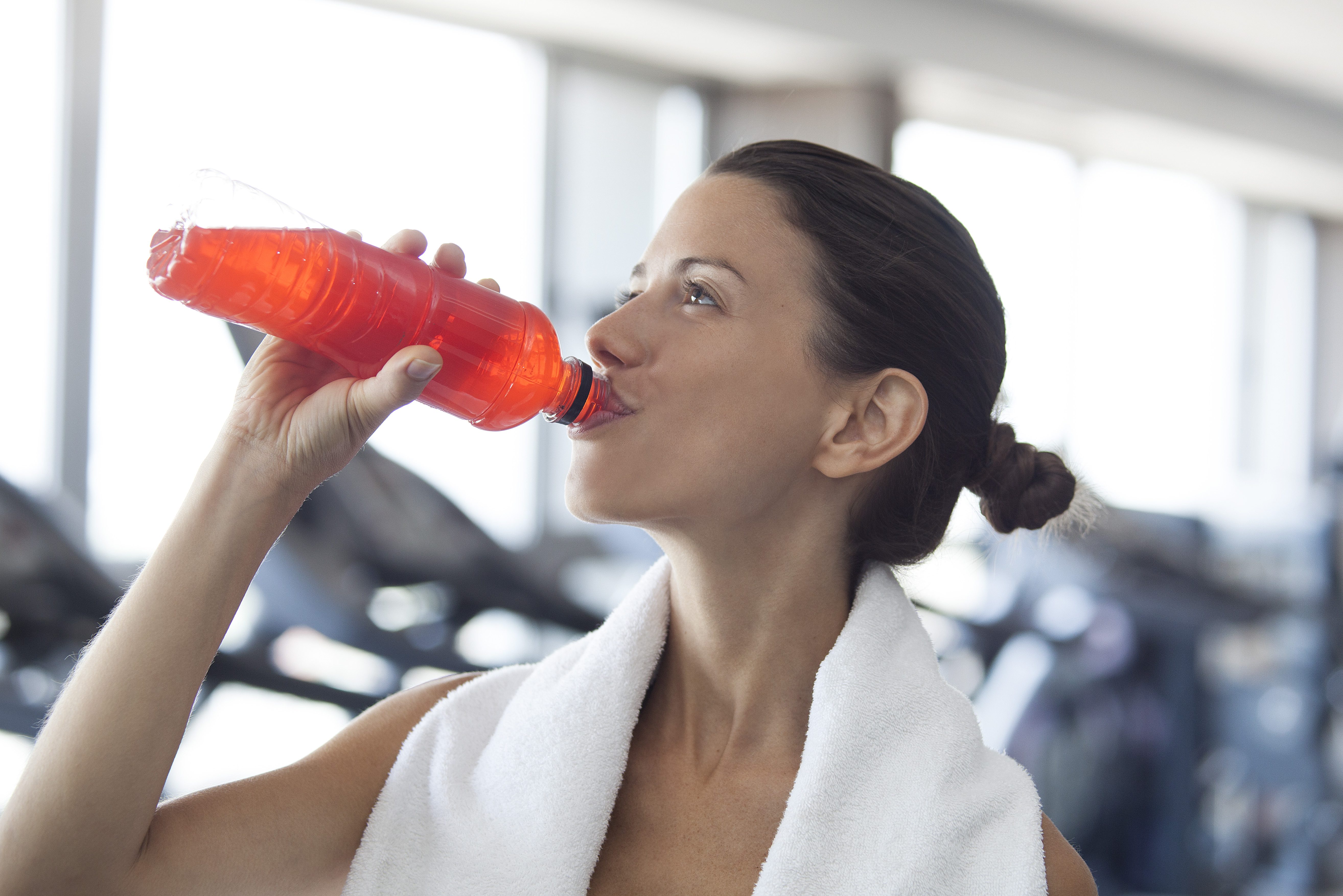What to eat after a workout: Best post workout meals according to experts
You've earnt yourself a tasty treat!


Parenting advice, hot topics, best buys and family finance tips delivered straight to your inbox.
You are now subscribed
Your newsletter sign-up was successful
The hard part is over: you’ve sweated, stretched and pushed yourself. Now it’s time to rest and refuel - but how do you decide what to eat after a workout?
You might have debated whether to eat before or after your exercise and opted for an expert approved pre-workout snack to adequately energise you. Yet eating after is just as essential, with your achy muscles needing the right nutrients to help recover and ready you for your next home-based HIIT workout.
With this in mind, we’ve asked the experts for their advice on what to eat after a workout and about the best post workout meals for your body. Sharing their knowledge, secrets and go-to post workout food, you’ll find all you need to know about eating right after exercise below...
What to eat after a workout - according to personal trainers
According to PTs, high protein meals are key when it comes to your post workout food, so tuck into meat, eggs and poultry. This protein helps the body to both build and repair muscles which is important after strength training.
Claire Richardson, a personal trainer and co-owner of F45 Holloway and F45 Blackhorse Lane in London, likes to team her protein with carbohydrates. "I find good options are salmon and sweet potato or grilled chicken and roast veggies. Or even a lovely protein porridge made with oats, protein powder and topped with whatever you fancy."

More than just a side, carbohydrates also play an active role after exercise, says fellow PT Jemma Thomas, founder of Jemma’s Health Hub.
“Carbs also help with recovery, especially if you’ve had a really long workout or have been doing endurance sports such as long distance running or swimming,” she says. “These carbs could include things like sweet potato, fruit, porridge, potato, dark, leafy vegetables or pasta.”
Parenting advice, hot topics, best buys and family finance tips delivered straight to your inbox.
Jemma also recommends some ‘good fats’ to eat after a workout. Avocado is full of healthy fats, as are nuts in trail mix. However, Jemma warns people not to forget one other overlooked food source:
“You should also be careful not to ignore fibre post workout either. That’s super important to keep the gut functioning well,” she says. “Go for wholewheat foods and fruit like berries, pears and melon, which are all rich in fibre.”
Be it a balanced meal or snack, when you eat should also be taken into consideration. “The best time to eat post work-out is around half an hour after exercising so that your body can refuel and help your muscles recover,” she adds.
What to eat after a workout - according to nutritionists
When determining the best post workout meal, nutritionist Harriet Bates reveals there are typically two phases to follow.
“The first phase, which is in the first hour after training, it’s all about a recovery snack” says Harriet, who works with Loughborough University’s Sports Performance Team and health and fitness app, Oro . “This needs to contain protein and carbs (for muscle repair and refuelling those energy stores) so we’re looking for something like Greek yogurt with some healthy granola, Soreen with peanut butter or beef jerky.
“Phase two is your recovery meal. Go for a balanced plate with plenty of protein, fruit and veg to protect the immune system.”

Plant-based nutritionist Dr Leila Dehgan-Zaklaki, of Plant Based Health Professionals, agrees that carbohydrates are important to eat after a workout.
“Carbohydrates are the only macronutrient that will help restore your glycogen stores,” she says, with glucose needed to give the body energy. “The main goal of post-workout nutrition is to replace lost fluids, electrolytes and energy, however, it depends on the length and intensity of your workout as well as when your next workout will occur.
“If you plan to work out later that day or the next day, you should aim to consume carbs within 30 minutes post workout. You also need protein for muscle repair. ”
Those looking to change to a plant-based diet should take note of Dr Leila’s recommended plant protein sources.
“Anybody who’s new to a plant-based diet has the option of choosing among the many plant proteins: peanut butter, nuts, chia pudding, or maybe a small portion of baked beans. Some post-workout snack ideas are a banana with one tablespoon peanut butter, a baked potato and a banana or dates with raw nuts."
The best post workout meal and food ideas
Breakfast
- Baked avocado, eggs and granary toast
- Seeded nutty homemade granola
- Peanut butter on rye bread topped with banana
- Greek yogurt with berries and chia seeds
- Porridge made with oats and protein powder
Lunch
- Roasted mediterranean vegetables with couscous
- Sweet potato with healthy veg or spicy pepper and chick peas
- Smoked salmon and avocado open sandwich
- Green vegetables frittata
- A healthy and filling salad
Dinner
- Sweet potato and spinach curry
- A healthy green pasta with courgette, peas and kale.
- Stir fry
- A healthy chicken tray bake
- Homemade burgers with minted lamb or chickpea and feta, served with sweet potato wedges.
Healthy snacks
- A banana with one tablespoon of peanut butter
- An apple with a bagel
- Trail mix or nuts
- Homemade protein balls made from dates and nuts of your choice
What to eat after a workout for weight loss
- Fruit
- Vegetables
- Quinoa
- Chia seeds
- Whole-grain rice or bread
- Fish
- Chicken
- Turkey
There’s many advantages to packing your plate with your recommended five-a-day portions, especially when deciding what to eat after a workout. Whilst providing your essential nutrients and fibre - fruit, vegetables and pulses are also significantly lower in calories.
This is why plant-based nutritionist Dr Leila advocates her diet when wanting to shed the pounds.
“Plant foods are nutrient dense, but lower in calorie density which not only help people to lose weight easier - because they can eat larger portions for less calories - but also maintain their weight loss,” she says. “Adopting a plant-based diet while working out therefore provides better support to those trying to lose weight.”
If you do however want to team your veg with an animal product go for lean poultry like chicken or turkey, or try fish. These contain considerably fewer calories than red meats and will help you on your weight loss journey.
Ppersonal trainer Jemma stresses that you shouldn’t avoid eating after a workout if weight loss is the goal. Not eating is incredibly dangerous for your health and wellbeing and goes against doctor recommendations. “If you’re trying to lose weight, please do not try fad diets or stop eating. You need food to focus, to exercise and care for you and your family so please don’t sacrifice food,” she says. “That includes carbs – having a meal that is too low in carbs can be detrimental and make you feel weak and lethargic.”
The NHS’s Eatwell Guide tells you exactly how much of each food group you should eat each day. They encourage that you follow this even when wanting to lose weight.
What to eat after a workout to build muscle
- Eggs
- Fish
- Chicken and other lean poultry
- Fruit and vegetables
- Beans, peas and lentils
- Tofu
- Cheese
- Yogurt and milk
According to the NHS, muscle-strengthening exercise and a healthy diet helps muscle development. Protein is recommended for muscle growth and repair and is found in dairy products, meats and pulses.
“A source of protein should be included at most mealtimes to optimise muscle building. Taking in protein before and after a workout has been shown to help kickstart the muscle repair process,” their website states.
Protein should be enjoyed with carbohydrates and fats, but like most food, should be eaten in moderation. The body only needs so much protein for muscle repair and any excess will be used for energy. “Most fitness enthusiasts can get enough protein from a healthy, varied diet without having to increase their protein intake significantly,” says the NHS.
Plant-based nutritionist Dr Leila also says you should eat plenty of fruit and vegetables when hoping to gain muscle. Exercise is deemed an ‘inflammatory event’ that can cause muscle soreness and stiffness post-workout. Fruit and vegetables contain phytonutrients which carry anti-inflammatory functions and therefore should be eaten to help heal your muscles after weight training.
What to drink after a workout
- Water
- Protein shake
- An isotonic sports drink
- A glass of milk
- Chocolate milk (with whole or semi-skimmed milk)
Re-hydrating is fundamental after engaging in exercise to replace the fluids you lose through sweat. Of all the drinks recommended by the experts - water remains the go-to drink after your session.
“Water is fantastic,” says personal trainer Claire Richardson. “Also a protein shake can be a great post-workout option. Keep it simple with your favourite protein powder mixed with water or unsweetened almond milk.”
Nutritionist Harriet Bates also says water is what to drink after a workout, but you don’t necessarily have to down buckets of the stuff.
“Typically in this country it's not hot enough to worry about being dehydrated so as long as you have some water with your recovery snack you should be fine,” she says. “Chocolate milk is also a great recovery snack made with whole or semi skimmed milk as it restores those hydration levels too.”

An NHS approved homemade sports drink is another good alternative to water. They suggest mixing 200ml of regular squash with 800ml water and adding a large pinch of salt.
The sort of drinks you want to avoid after a workout are alcohol and fizzy drinks as they will only make you more dehydrated.
What not to eat after a workout
- Pizza
- Fish and chips
- Fried chicken
- White bread or pastries
- White pasta or white rice
- Crisps
- Chocolate (that has under 70% cocoa)
- Foods high in salt
Refined carbohydrates like white bread, white rice and pasta are a no-go post workout. This is because they contain lots of sugar and have been stripped of healthy nutrients, bran and fibre.
Personal trainer Jemma also warns against fried and fast foods after exercise, with even the healthiest of takeaway options carrying lots of salt and fat.
“If you can, try to bake or steam food rather than fry them,” she says. “Fried foods, particularly fast food can be full of trans-fat so are not ideal post workout.”
She also encourages people to have their biggest meal at lunch and enjoy lighter meals for dinner. This will help your body digest food properly before bed.
Fellow personal trainer Claire similarly advises against large, stodgy meals post workout: “Avoid anything really heavy and hard to digest as your body will struggle and you may feel sick.”

Emily Stedman is the former Features Editor for GoodTo covering all things TV, entertainment, royal, lifestyle, health and wellbeing. Boasting an encyclopaedic knowledge on all things TV, celebrity and royals, career highlights include working at HELLO! Magazine and as a royal researcher to Diana biographer Andrew Morton on his book Meghan: A Hollywood Princess. In her spare time, Emily can be found eating her way around London, swimming at her local Lido or curled up on the sofa binging the next best Netflix show.